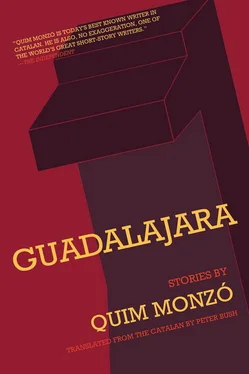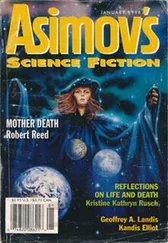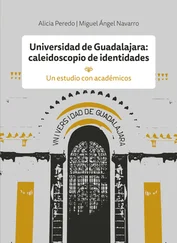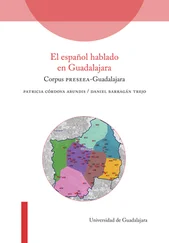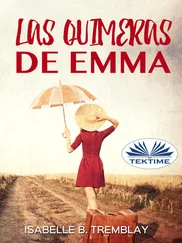Quim Monzó - Guadalajara
Здесь есть возможность читать онлайн «Quim Monzó - Guadalajara» весь текст электронной книги совершенно бесплатно (целиком полную версию без сокращений). В некоторых случаях можно слушать аудио, скачать через торрент в формате fb2 и присутствует краткое содержание. Год выпуска: 2011, Издательство: Open Letter, Жанр: Современная проза, на английском языке. Описание произведения, (предисловие) а так же отзывы посетителей доступны на портале библиотеки ЛибКат.
- Название:Guadalajara
- Автор:
- Издательство:Open Letter
- Жанр:
- Год:2011
- ISBN:нет данных
- Рейтинг книги:3 / 5. Голосов: 1
-
Избранное:Добавить в избранное
- Отзывы:
-
Ваша оценка:
- 60
- 1
- 2
- 3
- 4
- 5
Guadalajara: краткое содержание, описание и аннотация
Предлагаем к чтению аннотацию, описание, краткое содержание или предисловие (зависит от того, что написал сам автор книги «Guadalajara»). Если вы не нашли необходимую информацию о книге — напишите в комментариях, мы постараемся отыскать её.
Guadalajara — читать онлайн бесплатно полную книгу (весь текст) целиком
Ниже представлен текст книги, разбитый по страницам. Система сохранения места последней прочитанной страницы, позволяет с удобством читать онлайн бесплатно книгу «Guadalajara», без необходимости каждый раз заново искать на чём Вы остановились. Поставьте закладку, и сможете в любой момент перейти на страницу, на которой закончили чтение.
Интервал:
Закладка:
The prophet is thinking all this while searching anxiously for a scrap of paper to jot down his revelation. But even before finding one (he finds a notebook in his son’s briefcase and tears a sheet out), he knows that when he finally has that sheet in front of him, and his pen (he takes one from the pencil case in the same briefcase), so much time will have passed and he will be so stressed out that he’ll forget what it was yet again. In effect, when he has the sheet in front of him and a pen at the ready, he can’t remember the revelation. Only shards, fragments, and vague ideas remain. But he finds it impossible to reconstruct. Besides, he’s wracked by doubt. Was this revelation the same as the last one or were they two distinct revelations? Has God repeated the message he’d not been able to remember, or did He decide it was a lost cause and send him a new one?
The day after he decides to put a notebook and pen on his bedside table, just in case, the revelation is repeated. Obviously he regrets forgetting it again, but he finds the fact he has had another revelation hugely encouraging; we can assert that he’s never been as optimistic as he is today. Because this second revelation confirms he is a genuine prophet. His only idiosyncrasy is that he has a bad memory. Another source of hope: if the revelation has been repeated once, it can be repeated again.
He buys a small cassette-recorder in an electronics shop; he always carries it with him and puts it on his bedside table at night, ready to switch it on as soon as he has another revelation: if he sees it’s going to elude him yet again, he’ll record it rather than write it down. Even so, he keeps the notebook and pencil nearby, in case the cassette recorder doesn’t work or the batteries run out, even though he checks them every week, and he throws them away and inserts new ones long before they run out.
The years go by, but all his precautions are in vain. He has no more revelations. That son who was in his cot when he had his first one is now twenty-eight years old. His father has alerted him: You could get a surprise at any time, and you must always be prepared. When he was seven, his mother died; father and son wondered for several days whether that could have possibly been the prophecy, that his mother would die and he’d be half-orphaned. But it didn’t strike any bells with his father. Even so, they kept wondering. Whenever a war broke out or there was a disaster somewhere in the world, father and son wondered whether that might not be what had been revealed.
The father is now on his deathbed and calls for his son. His son is sitting outside on a chair, head bowed. The doctor leaves the bedroom, tells him to go in and to be sure, above all, not to tire him. The son enters the bedroom in a highly emotional state. The prophet’s eyes sparkle; he tries to talk, but is exhausted. He tries to say something, is breathless, takes a deep breath, closes his eyes for a moment, as if keeping them open was a struggle, but then re-opens them immediately. He says: “Son . . .”; his son leans over, clasps his father’s right hand in both of his. “Before I die . . .” the prophet whispers. But he immediately goes silent again. He looks away and stares at the opposite wall. His son looks where his father is looking, in case there is some special sign, some thing to indicate what he is trying to say with those quavering words, evidently the last words he will ever say, his final farewell. The son squeezes his father’s hand even harder. “Rest. Don’t try to say anything.” The prophet suddenly feels a breath of energy. “I mean that . . .” The door opens, and the nurse clatters in on her heels. The voice of the dying man is lost in the racket. The son puts his ear to his father’s mouth, hopes he will repeat himself. The nurse changes the bottle on the drip that enters one of the dying man’s veins through a tube. The son is literally lying on top of his father. Once she has changed the bottle, the nurse leaves, trying to ensure that her heels don’t clatter as much as they did when she came in. The prophet opens his eyes again. When he yawns, there are grayish folds at the corners of his mouth. “That’s why . . .” “Don’t force yourself . . .” “. . . I didn’t know how to . . .”
The old man closes his eyes and breathes with difficulty. What is he trying to tell him? Could he have remembered the prophecy on his deathbed? “Now I want to tell you . . .” The dying man opens his eyes wide, opens his mouth wide, and stiffens. His son sobs. He leaves the bedroom and looks for the doctor. The doctor certifies that he is dead. He lowers the eyelids with tweezers. The son leaves the bedroom. Other relatives in the dining room stop him and embrace him. One scene of grief follows another. He receives condolences, hugs shoulders, shakes hands, and wipes away his and other people’s tears. Throughout his life, the family had rarely talked about his father’s status as a prophet, and at that moment the son intuits a vague glint of curiosity in the occasional look, an interest in whether his father had remembered any of his revelations in the last seconds of his life. Someone had made coffee in the kitchen. The son pours himself a cup. He takes small sips because it’s burning hot. His relatives keep hugging him. He looks for a place where he can be alone. He decides to hide in the lobby. Nobody will see him in the darkness there, and he can be by himself for a few moments. As he heads that way, a cousin sees him from afar, walks over, gives him a hug, and inquires after his mental state. When the cousin goes back inside, the son opens the door on to the landing, walks out, and shuts it behind him, trying not to make any noise that might alert the others. He walks down the stairs and out into the street.
– 2 –
He finds work in another city. It’s a good idea to move and live in another city. They sell his father’s house, and he leaves. He establishes his own business a few months later with two work colleagues. He has a reasonable standard of living, is relatively happy, and plays cards with friends on Friday nights.
He wakes up one cold winter’s morning with a vision of a city in flames, its buildings in ruins, its roads full of deep fissures and people fleeing, panic-stricken. The images speed by at an unlikely rate and are accompanied by trumpet blasts. It is a very short, intense vision, and he strives to remember what’s written in white on a green and blue sign: PLACE LACHAMBAUDIE. The sign is the size and color of a Parisian street-sign. If he had a guide, he would check whether a square called Lachambaudie existed in Paris.
The next day he goes to a bookshop and buys a street guide to Paris: Guide general de Paris. Répertoire des rues. Éditions L’Indispensable . As he’s taking the guide out of the bag in the shop doorway and looking for Lachambaudie on the alphabetical list of squares, he hears the word “earthquake” on the lips of one of the girls walking into the shop at that moment. He turns around, goes over to them, apologizes for intruding, and asks which earthquake they are talking about. One of them says the earthquake that hit Paris two hours ago. The prophet’s son breaks into a run. He stops in front of an electronics shop and sees a Paris that has fallen victim to an earthquake, that not even the detectors had foreseen, on a dozen televisions.
He feels guilty that he said nothing. He watches them pulling corpses out of the rubble a thousand kilometers away and thinks he made a big mistake not telling any of the powers-that-be and wasting a regrettable amount of time looking for a street guide to check whether a square by the name of Lachambaudie existed in Paris. He only calms down when he realizes that if he had, nobody would have believed him and all those people would have died anyway.
Читать дальшеИнтервал:
Закладка:
Похожие книги на «Guadalajara»
Представляем Вашему вниманию похожие книги на «Guadalajara» списком для выбора. Мы отобрали схожую по названию и смыслу литературу в надежде предоставить читателям больше вариантов отыскать новые, интересные, ещё непрочитанные произведения.
Обсуждение, отзывы о книге «Guadalajara» и просто собственные мнения читателей. Оставьте ваши комментарии, напишите, что Вы думаете о произведении, его смысле или главных героях. Укажите что конкретно понравилось, а что нет, и почему Вы так считаете.
